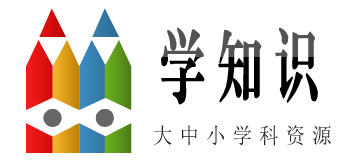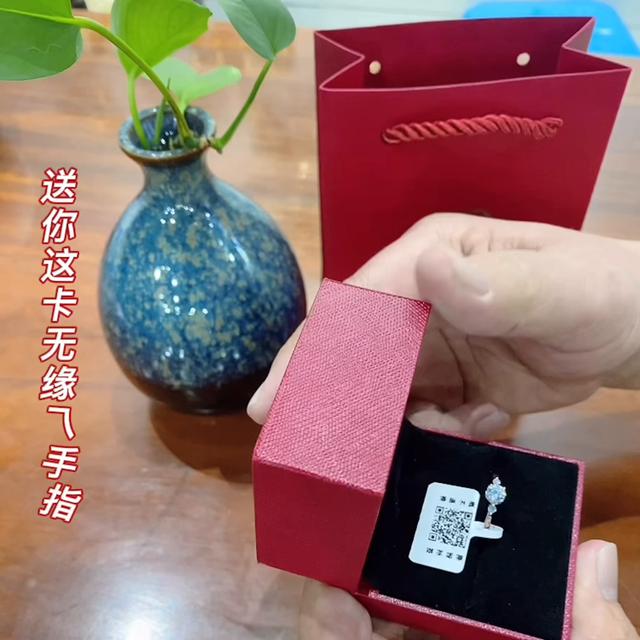Investors are pouring money into companies that promise to help people conceive
大量资金涌入辅助生殖行业

Bright-blue letters greet women at Trellis, an egg-freezing studio in New York. “It's up to each of us to invent our own future,” they enjoin. No baby pictures here, of the sort that adorn joyless waiting rooms at traditional fertility clinics. Instead the client-experience manager, Casy Tarnas, invites visitors to grab a charcoal-coloured “fertility-friendly juice”. Turkish-cotton robes await. If this feels like a spa rather than surgery, that is the idea. Egg-freezing, which promises to preserve young women's healthy eggs until they are ready to start a family, is supposed to be “an empowering experience”.
走进美国纽约Trellis卵子冷冻公司,一行广告语映入眼帘——“我的未来,我创造”——明亮耀眼的蓝色字母欢迎着女性客户的到来。这家公司并不像传统的生育医学中心那般,把等候室装潢得呆板无趣,也没有悬挂婴儿的照片。该公司客户体验经理凯西?塔拉斯(Casy Tarnas)会为来访者提供一杯黑灰色有助生育的果汁和一件浴袍。这样安排的用意在于让客户感觉这并不像手术,而是温泉疗养。冻卵技术可保存年轻女性的健康卵子,待想生育时取出卵子使用。冻卵应当是一次赋予女性自主权的体验。
The fertility business has always peddled hope to people who struggle to conceive naturally. It still does, extending the promise to singles and same-sex couples as social norms shift, and increasingly—as in the case of Trellis—to the much larger clientele of young women who wish to postpone childbearing while they pursue a career or await “the vitro fertilisation (IVF) and other artificial treatments. In Denmark, Israel and Japan the figure is more than Frost & Sullivan, a data firm. Add high operating margins—of around 30% in America for a $20,000 round of IVF—plus the recession-proof nature of the desire for offspring, and investors are understandably excited.
辅助生殖行业一直在给难以自然受孕的人们带来希望。随着社会风俗转变,它更是为单身人群和同性伴侣服务。同时,这一行业也逐渐惠及更多年轻女性(诸如Trellis的主要业务)。她们因发展事业或尚未找到心仪的另一半而希望推迟受孕时间。故而当她们终于想要育儿时也许更需要帮助。调查公司Data Bridge预测,截至2026年,全球辅助生殖行业销售额将从如今的250亿美元迅速增长至410亿美元。目前,美国每六十位初生儿中便有一位是通过体外受精(英文简称IVF)或其他人工辅助受孕方式诞生的。在丹麦,以色列和日本,该数据达到了二十五分之一,并且还在不断增长。弗若斯特沙利文数据公司(Frost & Sullivan)估计,截至2023年,中国辅助生殖行业收益将翻一番超70亿美元。在美国,一轮体外受精收费20,000美元,运营利润高达约30%。加之,人们对生育后代的渴望只增不减,就不难理解投资者为何十分兴奋了。
In 2018 fertility firms received $624m from venture capitalists and Private-equity firms, compared with less than $200m in 2009, according to Pitchbook, a data provider. In June Jinxin Fertility raised $360m in an initial public offering, the first on the Hong Kong Stock Exchange for a Chinese fertility firm. The market capitalization of Vitrolife, a listed Swedish company, has tripled since 2015, to $2bn.
数据提供商Pitchbook的数据显示,2018年,辅助生殖公司从风险资本家和私募股权公司处获得的投资大幅增长,从2009年的不到2亿美元,增至目前的6.24亿美元。今年6月,锦欣生殖医疗集团在港交所首次挂牌,募得资金3.6亿美元,成为在香港证券交易所上市的首家中国辅助生殖公司。瑞典上市公司Vitrolife的市值自2015年以来增长了两倍,达到20亿美元。
The money is flowing not just into treating infertility (as IVF clinics do) but also preserving fertility (egg-freezing clinics) and, even further removed from conception, diagnosing if either treatment or preservation might be needed one day (tests and trackers). Of these, infertility treatment is the most mature, though the landscape remains fragmented 41 years after the first IVF baby was born.
资本不仅流向治疗不孕(IVF医疗中心)的领域,也涌进保留生育能力(卵子冷冻公司)的领域;甚至远远超出了辅助生殖领域,流入对未来会否需要治疗不孕或冷冻卵子的诊断方面(利用诸多检测手段及随身跟踪装置)。这其中,治疗不孕的医学手段发展最成熟——尽管在首例试管婴儿问世41年后的今天,这一领域全貌仍不明朗,未成体系。
In America and Europe consolidation is now afoot. Private-equity firms think they can cut costs, acquire more patient data and build brands, as they have done with dental clinics. Last month Impilo, a Nordic investment firm which already owned the Fertility Partnership, a big British provider, agreed to buy VivaNeo, which has clinics in Austria, Germany and the Netherlands. China, where between 2006 and 2016 the number of fertility clinics ballooned from 88 to 451, could be next. Everywhere, clinics are bolting genetic problems to surgically wounding the womb to encourage the embryo to implant itself.
美国和欧洲的辅助生殖行业正上演并购大戏。私募股权公司认为,合并可以削减成本获得更多的患者数据,并打造出品牌,他们已经在牙科诊所行业成功运作过一轮。北欧投资公司Impilo,此前已将英国大型不孕不育医疗中心the Fertility Partnership收入囊中;上月,又同意收购欧洲辅助生殖行业的龙头公司VivaNeo,后者在奥地利、德国和荷兰均设有分公司。2006年至2016年间,中国辅助生殖医疗中心的数量从88家激增至451家,中国很可能成为下一场并购大戏的舞台。各地的医疗中心都在兜售价格不菲的新服务,内容涵盖从检测胚胎有没有遗传问题到手术破坏子宫植入胚胎。
The second type of fertility business—preservation—was spawned by more recent breakthroughs in flash-freezing sex cells, which dramatically increased the survival rates of frozen sperm and eggs after thawing. Egg-freezing clinics purport to sidestep a dilemma faced especially by women who wait beyond their mid-thirties, when egg cell deterioration can accelerate, to have a baby. Traditionally such women could improve their chances by buying young, healthy eggs from donors, or accept longer odds with their own eggs. Egg-freezing lets young, healthy women donate to their future selves.
近年来,速冻生殖细胞技术不断取得重大突破,精子和卵子解冻后的存活率显著提高。这时,辅助生殖行业的第二大分支——冻卵服务,应运而生。冻卵医疗中心自称旨在可以解救那些陷入两难境地的女性,尤其是那些想35岁之后生孩子的女性,因为35岁后卵细胞质量直线下降。以前,这些女性会从捐献者那里购买年轻、健康的卵子提高受孕成功率,或是顺其自然,即便时间长、成功率不高,也用自己的卵子。冻卵服务给那些健康的年轻女性为自己的未来保留卵子提供了条件。
The procedure mushroomed in America after the American Society for Reproductive Medicine removed the “experimental” label from it in 2012. In 2017 nearly 11,000 American women froze their eggs, 24% more than the previous year, according to the Society for Assisted Reproductive Technology. In Britain the number of frozen-egg cycles doubled between 2013 and 2016, to 1,321. Egg-freezers claim margins similar to IVF; some may already be profitable.
2012年,美国生殖医学协会宣布,冻卵技术完成试验阶段。其后,美国的冻卵服务如雨后春笋般飞速发展。据美国辅助生殖技术协会调查,2017年,有近11,000名美国女性冷冻卵子,同比增加24%。2013至2016年间,英国的冻卵治疗案例翻了一番,达到1,321例。冻卵医疗中心称其利润可与试管受精相媲美。一些冻卵医疗中心可能已经赚得盆满钵满。
Although preservation services are mostly aimed at women, firms are also eyeing men. Geneva-based Legacy (“The only life investment you'll make”) sends a return sperm-collection container by mail, analyses it and, for a hefty premium, stores it in a Swiss nuclear bunker. Since January thousands of men have bought the $99 “Dadi kit” from Dadi, a company in Brooklyn (“Store your sperm, stop the clock”). They include a surprising number of men preparing for a vasectomy, though the average customer is a 31-year-old millennial who has realised that “men too have a biological clock”, says Tom Smith, the founder.
尽管冻卵服务大多针对女性,但企业也在对男性虎视眈眈。总部位于日内瓦的Legacy公司(“你唯一的人生投资”)寄出了一个精子采集器又将其收回。分析研究后,为了更高的溢价,把采集器存于瑞士核掩体中。今年一月以来,成千上万的男性花99美元从布鲁克林的Dadi公司(“冰冻精子,永葆青春”)购买了“Dadi套装”。让人惊讶的是,其中绝大部分人正准备做输精管切除手术(绝育手术之一)。尽管客户的平均年龄才31岁,但是这些千禧一代早已认识到“最佳生育年龄也适用于男性”,Dadi创始人汤姆·史密斯(Tom Smith)如是说道。
The babies of the fertility business offer diagnostics. Firms like Everlywell and Modern Fertility send users a kit, costing about $160 apiece, to collect a finger-prick of blood or a drop of spit, which is then analysed for hormonal signs of potential problems. Celmatix, another startup, offers a pricier test to identify genetic markers associated with fertility problems.
辅助生殖产业中的初创公司会提供诊断服务。Everlywell和Modern Fertility这类公司会给用户发放一组160美元左右的检测套装,该套装置通过一滴指血,或一点唾液,便能分析出用户的激素水平,确定用户身体存在的潜在问题。初创公司Celmatix则向用户提供更为昂贵的基因测试,识别用户的基因是否带有生育障碍的遗传标记。
All fertility businesses stir controversy. Last year Pacific, a fertility clinic in San Francisco, and the Cleveland Medical Centre, in Ohio, lost many eggs and embryos to faulty storage.CHA Fertility, in Los Angeles, has been accused of implanting the wrong embryos, which led to the birth mother having to give up twins who were genetically related to two other couples. Peiffer Wolf, an American law firm representing several families involved in similar cases, says the industry, which can face fewer rules in America than nail salons, urgently needs some.
这些辅助生殖公司无一不引发争议。去年旧金山的太平洋(Pacific)生育医疗中心和俄亥俄州的克利夫兰医疗中心(Cleveland Medical Centre)由于保存失误,丢失了大量卵子和胚胎。洛杉矶的CHA Fertility公司因胚胎移植错误而被指控,一位母亲虽然生出了双胞胎,但从基因角度来看,这对双胞胎却属于另外两对夫妇。因而这位母亲不得不放弃新生儿的监护权,孩子则被送回到各自的遗传学父母身边。美国律师事务所Peiffer Wolf已经处理过很多类似的案件。该律所表示美国的生育行业面临的监管甚至不如美甲行业,因此亟待出台更多监管规则。
Clinics in America and beyond are also accused of playing up success. Like motorists and asset managers, most claim above-average results. As for their newfangled extras, the British regulator, which uses a traffic-light system to grade 11 popular IVF add-ons, has yet to give one a green light, meaning it is both safe and effective. The newer breeds of fertility firm are similarly criticised for misleading customers. In fact, existing egg-preservation techniques are expensive, invasive, often ineffective—and regularly oversold.
美国及其他国家的生育医疗中心也因夸大治疗效果备受诟病。大多数医疗中心与那些汽车驾驶员和资产管理经理如出一辙,都信誓旦旦地称自己的治疗效果大大高于平均水平。对于他们提供的新奇的附加服务,英国的监管者采用交通灯体系对11种备受欢迎的体外受精附加服务评级,绿灯就代表这种服务安全有效,但目前还没有一种服务获得绿灯。同样,新诞生的生育公司亦因为误导用户备受指责。事实上,现有的卵子冷冻技术价格高昂,副作用显著,失败率高,况且常常售价虚高。
In Britain just 41 “ice babies” were born in 2016 using the mother's own frozen eggs, not nearly enough for reliable statistics, so egg-freezers often cite success rates from defrosted eggs of donors, an unrepresentatively young, healthy sample. Prelude, an American company which recently merged into a bigger venture offering treatment and preservation, promises, improbably, to help families have “as many healthy babies as they want, whenever they want”. Extend Fertility, another American firm, advertises egg-freezing “for the price of a healthy snack”. Celmatix claims that its tests help people “dramatically improve their chances of conceiving”. Modern Fertility concedes it cannot predict the future, but offers a “fertility timeline” that some customers may treat as a bespoke egg timer. Some startups give Instagram influencers subsidised treatments in exchange for touting the service to millennial followers.
在英国,2016年使用母亲的冷冻卵子降生的“冷冻宝宝”仅有41名,样本数偏少,作为统计数据并不可靠,因此冷冻卵子公司便经常引用那些捐献者卵子解冻案例的成功率,但那些相对年轻且健康的案例也不具有代表性。美国Prelude公司,最近开展了一项相关治疗和冻卵业务。令人匪夷所思的是,该业务居然承诺帮助那些有需要的家庭“随时随地定量提供他们渴求的健康宝宝”。另一家名为Extend Fertility的美国公司也在广告中标榜他们的卵子冷冻服务“物美价廉”。专注于妇女健康的医疗公司Celmatix也宣称它的测试技术能够帮助妇女“显著提升受孕几率”。而Modern Fertility公司则谦称自己虽然无法预知未来,但是可以提供“生育的时间轴”,为一些客户提供专属的定时卵子。一些初创公司则给Instagram上的流量明星提供治疗补贴,以换取向千禧一代的粉丝兜售辅助生殖服务。
None of which dampens the fertility industry's appeal to women, men—or investors. Many will be disappointed: prospective parents, because too many of them will still, despite fertility businesses' promises, be unable to conceive; and, with nothing like the emotional toll, those pouring money into these firms. But the methods—and providers' prospects—are bound to improve with time. With luck, the capital currently flowing into research on reproduction, a surprisingly mysterious aspect of human biology, will hasten the process.
辅助生殖行业中,妇女、男性以及投资者们都蜂拥而至,许多人却只会失望而归。即便生育公司满口应承,满怀期望的准父母们大多数还是无法生育,还有那些不断投钱给这些公司的可怜人儿估计也是竹篮打水一场空。但是解决生育问题的医疗手段以及辅助生殖公司的前景势必会随着时间的推移而有所进步。幸运的是,资本正涌入生殖研究领域,人体生理学的神秘面纱也许会被掀起一角,从而加速这个行业的发展。










